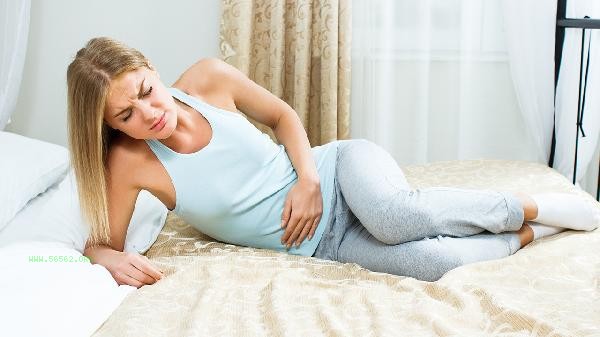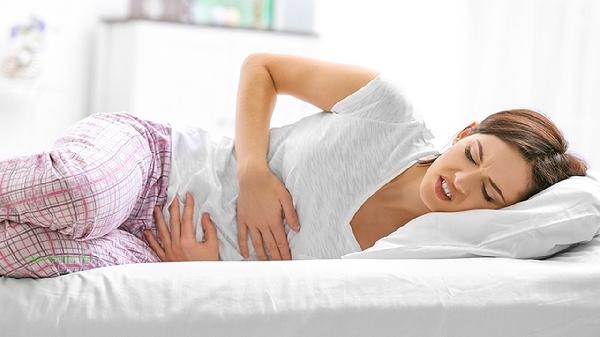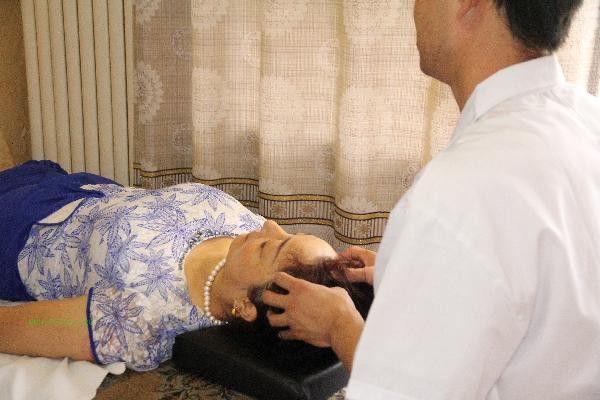Amenorrhea patients can usually improve their symptoms through traditional Chinese medicine treatment, but the efficacy depends on the specific cause. Amenorrhea may be related to factors such as insufficient qi and blood, liver and kidney deficiency, qi stagnation and blood stasis, phlegm dampness obstruction, cold coagulation and blood stasis.

1. Insufficient Qi and Blood
Long term overwork or malnutrition may lead to insufficient Qi and blood, manifested as symptoms such as reduced menstrual flow, pale complexion, and fatigue. Traditional Chinese medicine commonly uses formulas such as Guipi Tang and Bazhen Tang to nourish qi and blood, combined with medicinal herbs such as Huangqi and Codonopsis pilosula. Daily consumption of blood nourishing ingredients such as red dates and goji berries should be avoided.
2. Liver and kidney deficiency
Congenital deficiency or long-term illness that damages the kidneys may cause amenorrhea, accompanied by symptoms such as soreness and weakness of the waist and knees, dizziness and tinnitus. Formulas such as Liuwei Dihuang Pill and Zuogui Pill can nourish the kidney and liver. Medicinal materials such as cooked Dihuang and cornus officinalis have tonic effects. It is recommended to exercise moderately to enhance physical fitness and avoid staying up late and wasting energy.
3. Qi stagnation and blood stasis
Emotional disorders or trauma may cause obstruction of qi and blood circulation, resulting in symptoms such as dark blood color in the meridians and pain in the lower abdomen. Formulas such as Xuefu Zhuyu Tang and Shaofu Zhuyu Tang can promote blood circulation and remove blood stasis. Commonly used medicinal herbs include Angelica sinensis and Chuanxiong. Maintaining a relaxed mood and massaging the abdomen appropriately can help promote the circulation of qi and blood.

4. Phlegm dampness obstruction
People with spleen deficiency and excessive dampness or obesity are prone to phlegm dampness resistance, manifested as amenorrhea, obesity and fatigue. Cangfu Daotan Tang, Erchen Tang and other formulas can reduce phlegm and dampness, combined with spleen strengthening herbs such as Poria cocos and atractylodes macrocephala. The diet should be light and reduce the intake of greasy sweets.
5. Cold coagulation and blood stasis
Menstrual coldness or Yang deficiency constitution may cause cold coagulation in the uterus, commonly resulting in delayed menstruation and lower abdominal pain. Formulas such as Wen Jing Tang and Ai Fu Nuan Gong Wan can warm the meridians and dispel coldness, while medicinal herbs such as Ai Ye and cinnamon have a warming and promoting effect. Pay attention to keeping the abdomen warm and avoid cold water stimulation.

Amenorrhea patients should maintain a regular daily routine and balanced diet, and engage in soothing exercises such as Ba Duan Jin and Tai Chi, in addition to traditional Chinese medicine treatment. Avoid excessive dieting or emotional fluctuations. If there is no improvement or severe symptoms after three months of conditioning, seek medical attention promptly for organic lesions. Traditional Chinese medicine conditioning should be carried out under the guidance of professional physicians, and treatment should be based on the differentiation of physical constitution. Self medication is not allowed.






Comments (0)
Leave a Comment
No comments yet
Be the first to share your thoughts!